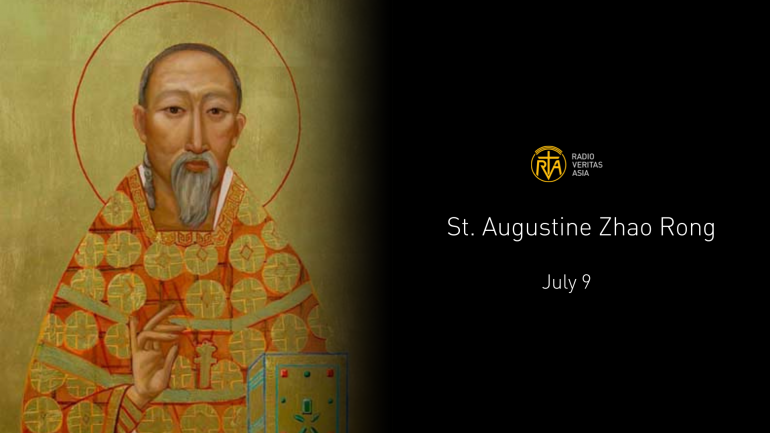St. Augustine Zhao Rong and the Christian Roots in China

Christianity was believed to have reached China around 600 AD. Preachers, priests, and catechists faced severe persecution here, with the blood of the martyrs serving as one of the foundations of the Catholic Church in this Asian nation. Most notable is Saint Augustine Zhao Rong, whose feast day we celebrate today, July 9.
Originally surnamed Zhu, he was born in 1746 in Wu Chuan, Guizhou Province. When he was about 20 years old, he served in the military as a sergeant.
Christian persecution began in China in 1748 during the reign of the Qianlong Emperor. Zhu and a company of guards were assigned to escort a French missionary to prison, a bishop named John Gabriel Taurin Dufresse.
The teachings of the foreigner moved Zhu. This unexpected relationship led to Zhu receiving baptism from the bishop and becoming a Christian himself.
He took the name Augustine, as he was baptized during the saint’s feast day.
Augustine wanted to delve even deeper into the Christian faith. He then sought training to become a priest. He was ordained only five years after his baptism, making him the first-ever Chinese diocesan priest at 35. He adopted the surname Zhao, and from then on was called Zhao Rong.
Augustine was assigned to shepherd the Christians in the counties of Guan Xian, Jin Tang, and Wen Jiang in western Sichuan Province. But when persecution resumed in 1815 during the reign of the Jia Quing, he became at risk of being captured. His fellow priests urged him to flee, but due to his old age, Augustine chose to stay and persevere.
He was eventually reported by a Chinese gangster to the authorities and was arrested. He was transferred to Chengdu, the capital of Sichuan, where he suffered many forms of torture and abuse while behind bars.
When he was asked to renounce his faith, Augustine was recorded to have said: “I am willing to accept all kinds of punishments, but the one thing I cannot do is abandon my Lord Jesus Christ.”
Due to his frail state and old age, Augustine soon succumbed to his injuries and died in prison. He was buried in Guan Shan.
Augustine’s death inspired other Christians to stand up for their faith despite the harsh persecution of Chinese authorities. Many died as martyrs after him who came from all walks of life, with the youngest of them at nine years old.
In 1822, Augustine’s body was reinterred in Feng Huang Mountain in Guangdong Province.
He was beatified by Pope Leo XII on May 27, 1900, and was canonized by Saint Pope John Paul II on October 1, 2000. He shares his feast day with 120 other Chinese martyrs who have died between 1648 and 1930.
The life of Saint Augustine Zhao Rong is a powerful sign of how faith can blossom even in the darkest of times. When the blood of the martyrs is shed, the Church’s foundation becomes stronger than ever.
Radio Veritas Asia (RVA), a media platform of the Catholic Church, aims to share Christ. RVA started in 1969 as a continental Catholic radio station to serve Asian countries in their respective local language, thus earning the tag “the Voice of Asian Christianity.” Responding to the emerging context, RVA embraced media platforms to connect with the global Asian audience via its 21 language websites and various social media platforms.













